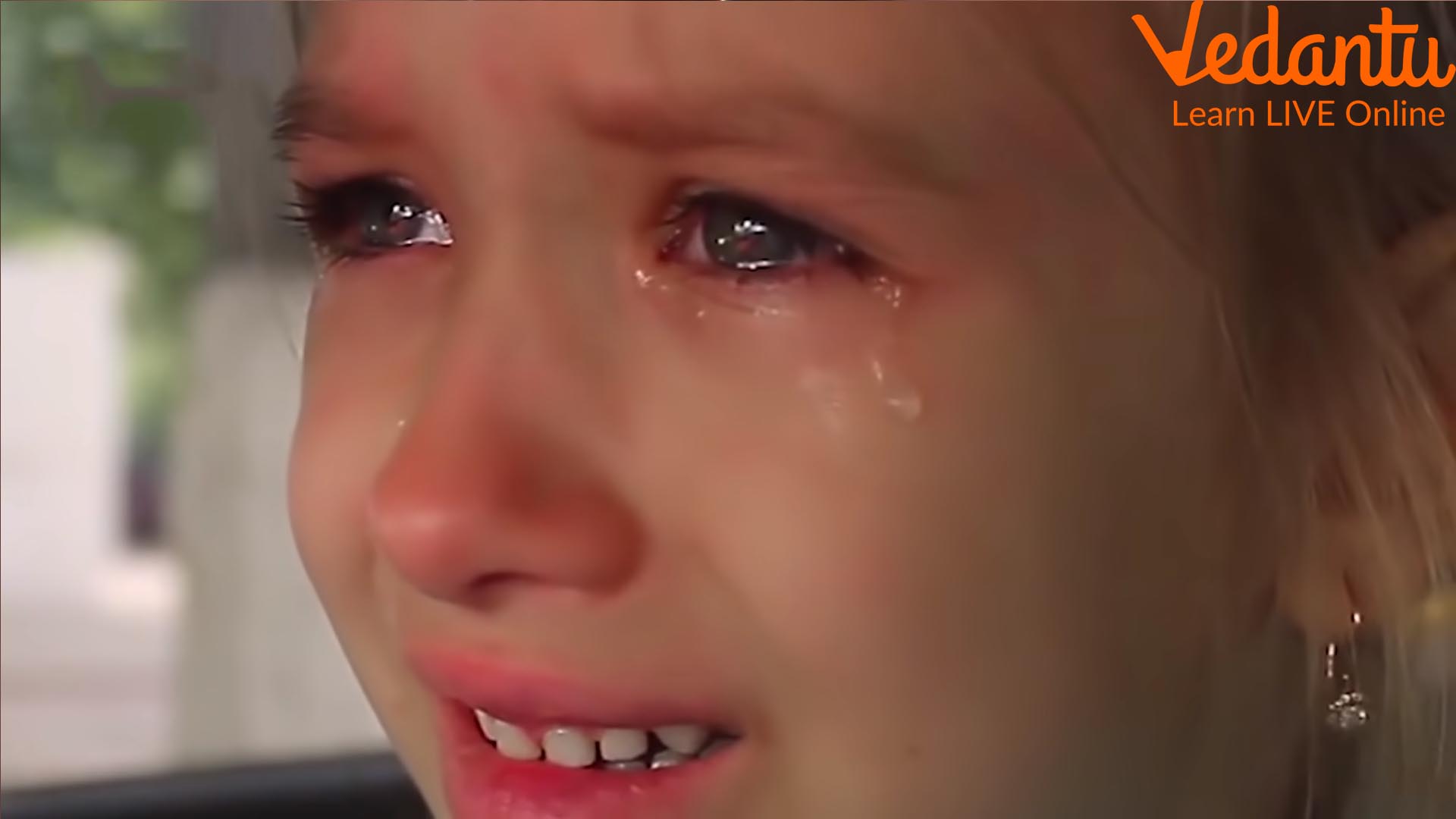Types of Crying and 6 Scientific Reasons Behind It
Introduction
Our eyes are the most sensitive organs exposed topically. The uppermost layer of our eyes needs constant protection from dust and debris. This is why human eyes wield lacrimal glands or tear glands. It rains from our eyes when we bite a chilli or when we watch something emotional on TV. In this article, we will discover why we cry.
Crying is a natural process and is triggered by various reasons. All these reasons will be discussed with proper scientific reasons. Let us find our eyes cry and how the tears are produced.
What is Crying?
Crying is a natural process where the lacrimal glands of our eyes produce tears. These tears roll down through the ducts and appear on the eyes through puncta. They either roll down over the cheeks or get accumulated in the nose via the nasolacrimal duct.
Precisely, tears are the secretion of lacrimal glands present at the top edge of the eyes. The amount of tears produced is more when we cry. When we are in normal physiological conditions, the amount of tears is less. It is done to prevent the exposed topical covering of our eyes from drying and irritation.
Different Types of Crying
It might sound weird but we cry for various reasons. It is not that we are always emotional when we cry. The human brain has a unique way of controlling tears depending on the reasons for crying.
Let us check the different types of crying first.
1. Reflex Tears
When an external object or irritant lands on the exposed part of our eye, we start lacrimation. This is an involuntary action controlled by our brain. It is done to wash down the irritant from our eyes and protect the topical layer or sclera. The best example of reflex tears is crying due to peeling an onion. We have witnessed how real crying eyes look when someone peels an onion!
2. Basal Tears
Basal tears are comparatively lower in volume. These tears are produced almost all the time and spread in the eyes when we blink. It is done to lubricate the exposed part of the eyeballs and to protect it from undetectable depositions such as dirt, suspended particles in the air, bacteria, etc. Basal tears protect us from infections too. It is also an involuntary action controlled by the human brain.
3. Emotional Tears
As the name suggests, emotional tears are the result of external stimuli that trigger our lacrimal glands. If you ask someone sobbing why are you crying, he/she will give you the emotional reason. It means this type of tear has a psychological reason behind it. For example, a person cries when someone close to them dies or while watching an emotional movie.

Why Do We Cry?
The Link between Cry Tears and Emotions
Psychological tears can be considered an evolutionary trait among humans. Lacrimal glands are connected to the distinct part of the human brain that controls emotions. This is why when a human brain is sad or happy or shows any behavioural response using the limbic system, lacrimation is activated. A crying person starts shedding tears when anything emotionally triggers him.
Why Do People Cry?
There are various scientific reasons why people cry. The common reasons are:
1. To seek help
Crying is a way to seek help from someone close. Toddlers cry to seek attention and help from their parents or people nearby. Even adults also cry to seek help. It is a typical physiological response that has been hardwired into our brains. We show it when we are in danger or cannot control this response.
2. Relieving pain
You will be surprised to know that people cry to get relief from pain. Studies suggest that crying is a natural way of relieving physical and emotional pain. Crying releases emotional distress relievers such as oxytocin and endorphins.
3. Strengthening social bonds
Crying makes people vulnerable and helps you generate sympathy from others. It is not ideal for fight and flight syndrome but delivers a way to socially bond by gaining consolation and support.
4. Processing emotions
Crying is the easiest way to process emotions. A person feels extremely relieved when he cries based on particular situations. Emotional pain causes crying and helps you to get relief from distress.
5. Sympathising
You can show sympathy when you feel the pain of others by crying. It is a way to show that you are witnessing others’ pain.
6. Crying for a reason
Some people use crying as an excellent method to get things done. It can be used for manipulation. Crying words are used to manipulate people with soft hearts.
What Happens When We Cry?
Your body processes the following things when you cry.
Crying causes your diaphragm to move up and down vigorously.
A plethora of hormones is released to calm you down. Acetylcholine is released to restore the lost balance.
Cortisol, a stress hormone, is released with tears. Hence, crying lightens your emotional weight and helps you to calm down by de-stressing. In fact, not crying or holding up stresses your body.
The levels of happy hormones such as serotonin and oxytocin increase considerably.
Crying is a way to dissipate physical and mental tension together at the same time. Apart from the physical tension, we are the only animals who use tears to ward off emotional stress.
The Trivia of Crying
Babies cry as it is the only way to communicate with adults. They do not know languages to communicate. Hence, they cry when they are hungry or feeling irritated. They cry to tell them that they need something. As time passes, they learn to communicate in other ways. This is all about crying, its scientific mechanism and the reasons we cry.







